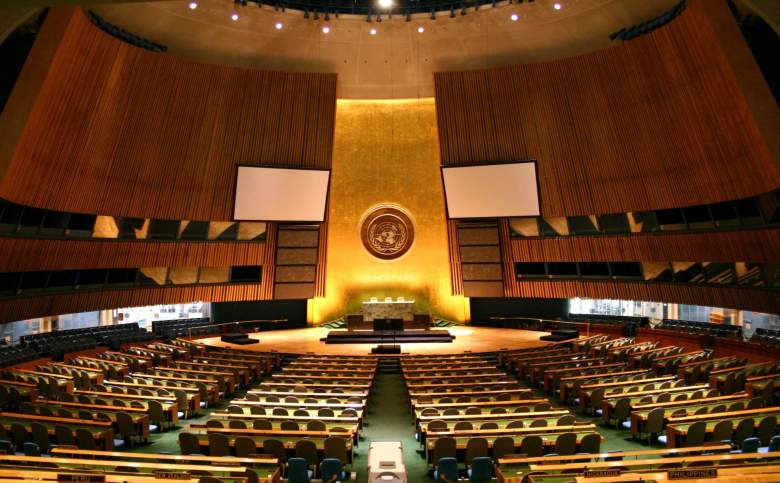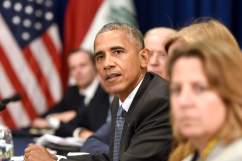
President Donald Trump will make his first appearance at the United Nations General Assembly in New York on Tuesday.
Trump, who ran his presidential campaign on a platform of “America First,” will make his case to a global audience that the United States will remain engaged around the world.
During the 2016 campaign, Trump gave a speech to the American Israel Public Affairs Committee’s conference and mentioned what he called the “utter weakness and incompetence of the United Nations.”
“The United Nations is not a friend of democracy. It’s not a friend to freedom,” Trump said, according to ABC News. “It’s not a friend even to the United States of America, where, as you know, it has its home. And it surely is not a friend to Israel.”
On Monday, Trump spoke at the United Nations during a meeting about UN reform.
At the meeting, UN Secretary-General António Guterres of Portugal said he was recently asked what kept him up at night. His reply? “Bureaucracy.”
Here’s what you need to know about the UN General Assembly:
1. The UN General Assembly Is One of Six Main Bodies That Make Up the United Nations
Created in 1945, the General Assembly is “the main deliberative, policymaking and representative organ” of the United Nations. All 193 members of the UN participate in the General Assembly.
The General Assembly is the only part of the United Nations that gives all member states equal representation.
Decisions on important questions, such as those on peace and security, admission of new members and budgetary matters, require a two-thirds majority. Decisions on other questions are by simple majority.
The UN General Assembly President is Miroslav Lajčák
Miroslav Lajčák is the president of the 72nd Session of the UN General Assembly. A longtime diplomat from Slovakia, he also serves as the Minister of Foreign & European Affairs of Slovakia.
According to his government bio, he speaks English, Russian, German, French, Serbian/Croatian/Bosnian/Montenegrin and Bulgarian.
The presidency changes every session. The previous president of the UN General Assembly was Peter Thomson of Fiji.
3. UN General Assembly Sessions Begin Each Year in September
The 72nd session of the UN General Assembly began this week at the United Nations headquarters in New York City.
There are six committees:
Disarmament & International Security
Economic & Financial
Social, Humanitarian & Cultural
Special Political & Decolonization
Administrative & Budgetary
Legal
The General Assembly adopts a working agenda each year. This year a new item has been added to the agenda: “The Responsibility to Protect and the prevention of genocide, war crimes, ethnic cleansing and crimes against humanity.”
4. There are 21 Vice Presidents on the UN General Assembly
The Assembly also elected the following 21 Vice-Presidents of its plenary: Afghanistan, Bolivia, Chile, Finland, Gabon, Ghana, Guatemala, Indonesia, Israel, Liberia, Madagascar, Morocco, Sri Lanka, United Arab Emirates, Vanuatu and Zimbabwe. Also serving as Vice-Presidents were the five permanent members of the Security Council — China, France, Russian Federation, United Kingdom and the United States.
5. The Delegation Occupying the First Seat in the General Assembly Hall Is Chosen Randomly
The size or influence of a nation doesn’t determine where its delegates will sit in the General Assembly Hall. Instead, it’s chosen by a random draw of names. This year, the Czech Republic was chosen for the first seat.
Acting in accordance with tradition, the Secretary-General then drew lots to determine which delegation would occupy the first seat in the General Assembly Hall during the seventy-second session. The Czech Republic’s delegation was picked for the first seat, to be followed in English alphabetical order by all the other countries, including in the Main Committees.

